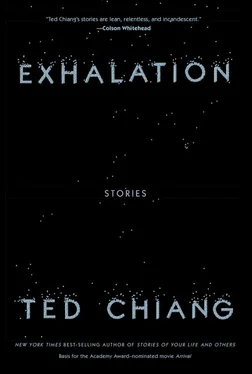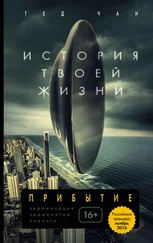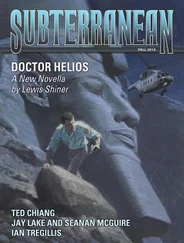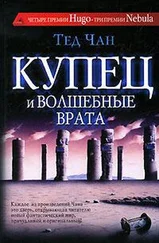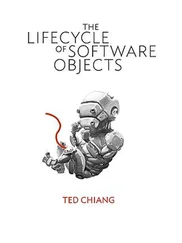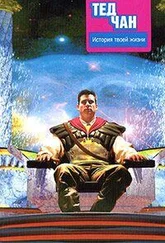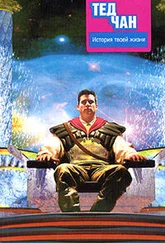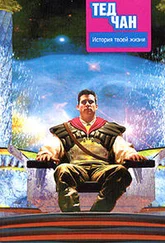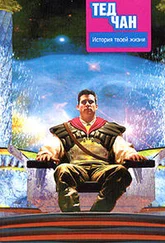I suppose one could argue that the idea of polygenism has been around for centuries, so it didn’t come as a surprise when archaeological findings confirmed it. Which is true. Church scientists have long struggled to explain how a single couple could populate the Earth so quickly, so they must have privately contemplated alternative theories before they were forced to change their official stance. By contrast, I have never heard a serious argument that humanity was not the purpose of creation before Lawson’s paper. So perhaps Church scientists will be just as taken aback as I was, before their loyalty to doctrine reasserts itself.
The problem for me as a secular scientist is that my faith has always been, first and foremost, shaped by the evidence. I admit that I didn’t previously appreciate the importance of astronomy in understanding our station, but now I do. And if we take as our premise that humanity was the reason for creation, then that should be reflected in the skies above just as much as in the earth beneath our feet. If humanity is the central fact of the universe, if our species is the omphalos, then a close examination of the celestial sphere should confirm that privileged status. Our solar system should be the fixed point against which all else is moving; our Sun should be at absolute rest. If the evidence doesn’t support that premise, then we must ask where our commitment truly lies.
I understand, Rosemary, if this doesn’t disturb you or Alfred the way it does me. I don’t know how most people will react when Lawson’s discovery becomes widely known. Wilhelmina McCullough anticipated that others would respond the way her father did, and in my case she was correct. I wish this didn’t affect me so deeply. Would that we could choose the things that trouble us, but we can’t.
But if you find that this does disturb you, know that you can discuss your apprehensions with me, whatever form they take. While each of us must find our own way forward through this forest of doubt, it is only with the support of others that we’ll be able to do so.
With much love, your cousin, Dorothea
· · ·
Lord, perhaps you don’t hear my prayers. But I’ve never prayed with the expectation that it would affect your actions; I prayed with the expectation that it would affect mine. So I pray now, for the first time in two months, because even if you’re not listening, I need the clarity of thought that prayer provides.
I left the dig because I feared that Lawson’s discovery rendered the whole enterprise meaningless. The reason the spearpoints that Dr. Janssen discovered were so exciting was that enough of the shafts remain that we thought we might be able to use growth rings to precisely identify the years in which they were fashioned. If we could identify trends in stone-knapping technique, we hoped to learn if knappers’ expertise grew or waned in the first generations after creation, and from there draw deductions about what your intentions were regarding human knowledge, Lord. But that was based on the assumption that the primordial humans were the most direct expression of your will. If humanity’s creation wasn’t deliberate on your part, then whatever skills primordial humans possessed tell us nothing about your intentions. Their endowments would have been purely accidental.
Since I’ve been here at the cabin, I have spent a lot of time thinking about how much the primordial humans knew. They couldn’t have come into being with minds as blank as newborn infants, because they’d have rapidly starved to death in such a scenario. Even tiger cubs must be taught how to hunt by their mothers. There’s no way that humans could have, from first principles, learned how to hunt for food before they perished. The primordial humans must have possessed some knowledge of hunting and constructing shelters. Was that one of the experiments you conducted, Lord? Determining the minimum set of skills necessary for the species to survive? Or perhaps it was just another unintended side effect, a faint echo of whatever information you imbued the primordial inhabitants of 58 Eridani with.
There is another piece of information, just as vital as survival skills, that I’ve assumed the primordial humans knew from the moment they drew breath: that they were created for a reason. The possibility that they didn’t know this is something I haven’t been able to stop thinking about. Rather than being filled with pride and ambition, they must have been afraid and confused during their first few days. I’ve tried to imagine what it must have been like to awaken fully formed, possessing certain skills but without a past to remember, lost in a world of amnesiacs. It seems terrifying to me, even more terrifying than what I’ve experienced these last few weeks.
And it raises another question. Why did the primordial humans set about building civilization, if not out of a desire to fulfill divine purpose? Avoiding cold and hunger would motivate them to secure necessities, but why did they advance beyond those? Why did they begin inventing all the art and technology that has made humanity what it is today, if not to carry out your will, Lord?
I don’t know, but I have formed a theory.
Archaeology may not be as exact a science as physics, but it relies on physics for its foundations. Physical law is what makes it possible to study the past; examine the state of the universe closely enough, and we can infer its state a moment earlier in time. Each moment follows inexorably from the previous one and is followed inexorably by the next, links forged in a causal chain.
But the moment of creation is where all causal chains end; inference can lead us back to this moment and no further. That is why the creation of the universe is a miracle: because what happened in that moment was not a necessary consequence of what preceded it. That primordial clamshell that Wilhelmina keeps with her is indeed proof of something: not of God’s plans for humanity, but of the existence of miracles. That border where the growth rings end marks the limit of physical law’s explanatory power. And that is something we can take inspiration from.
Because I think there are events of another category that are likewise not fixed in a causal chain: acts of volition. Free will is a kind of miracle; when we make a genuine choice, we bring about a result that cannot be reduced to the workings of physical law. Every act of volition is, like the creation of the universe, a first cause.
If we had no evidence for the miracle of creation, we might think physical law was sufficient to explain every phenomenon in the cosmos, leading us to conclude that our own minds were nothing more than natural processes. But we know that there is more to what we observe than physical law can encompass; miracles happen, and human choices are surely among them.
I believe the primordial humans made a choice. They found themselves in a world full of possibilities but with no guidance as to what to do. They didn’t do what we would have expected, which is to merely survive; instead, they sought to improve themselves so that they might become masters of their world.
We scientists are in a similar situation. The evidence has always been there for us to find: the trees without growth rings, the mummies without navels, the motion of 58 Eridani. It is up to us what we do with that. We have always seen it as determinative of the value of our lives, but that wasn’t inevitable. We chose to do that, which means we can choose to do otherwise.
I’ve devoted my life to studying the wondrous mechanism that is the universe, and doing so has given me a sense of fulfillment. I’ve always assumed that this meant that I was acting in accordance with your will, Lord, and your reason for making me. But if it’s in fact true that you have no purpose in mind for me, then that sense of fulfillment has arisen solely from within myself. What that demonstrates to me is that we as humans are capable of creating meaning for our own lives.
Читать дальше
